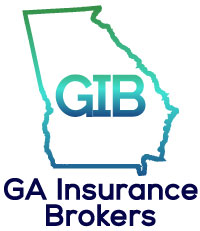Best Insurance plans for Millennials

Term Vs Whole Life Insurance
April 20, 2019
SUPPLEMENTAL INSURANCE PLANS CAN SAVE YOU
May 8, 2019Millennials are happily aging and building families with financial security atop the personal “to do” list. Millennials want all of the information possibly available so they can make the best decision for their families. Millennials (people born between 1982 and 2002) are constantly looking for options to get the best product or service for the best price. Health insurance decisions are ranking higher and higher on the ladder of personal financial decisions because, without the proper health insurance, a health care catastrophe in the family could spell complete financial ruin. Many Millennials are finding health sharing plans to be their choice for health care for their families.
Many times, Millennials and their spouses say they are really healthy and don’t think they need health insurance. They note they don’t have any pre-existing conditions and they only go to the doctor once a year (sound familiar). This is akin to saying, “I am a really good driver and don’t think I needed car insurance.” The point is two-fold. First, health insurance isn’t all about your health, it is also about financially covering yourself and your family for unforeseen accidents or illnesses. Secondly, insurance is preparing yourself for the unexpected. When we leave the house, we never expect someone to run into our car – nor do we expect to come down with a major illness.
We can take care of our bodies, but we cannot predict our future health. Being prepared for the health care unexpected is what health insurance is all about. Millennials – more than any other generation thrives on being prepared for the unexpected. There are many choices when it comes to health insurance depending on where you live, what conditions you have when you enroll and if you are going to receive a tax credit.
While traditional plans are pretty similar in nature as well as price, there are health sharing plans which are becoming more and more popular. These plans tend to be much less expensive while still covering many of the same things that the traditional plans cover. They do have their caveats or conditions, but you can overcome many of these issues by pairing these plans with an inexpensive supplemental plan. For example, if you chose a health sharing plan with a high deductible, you can add a hospitalization plan that will pay you to cash in the event you are hospitalized or have surgery. The combination of the two plans costs less than the premium for a traditional health insurance plan.
As we all know, adding another monthly bill to your budget can seem like a lot, but at Ga Health Brokers, we are here to help you make the best decisions based on your families’ personal circumstances. We want to ensure that you are covered and protected against financial ruin in the event you have a serious, unexpected illness or an injury.





